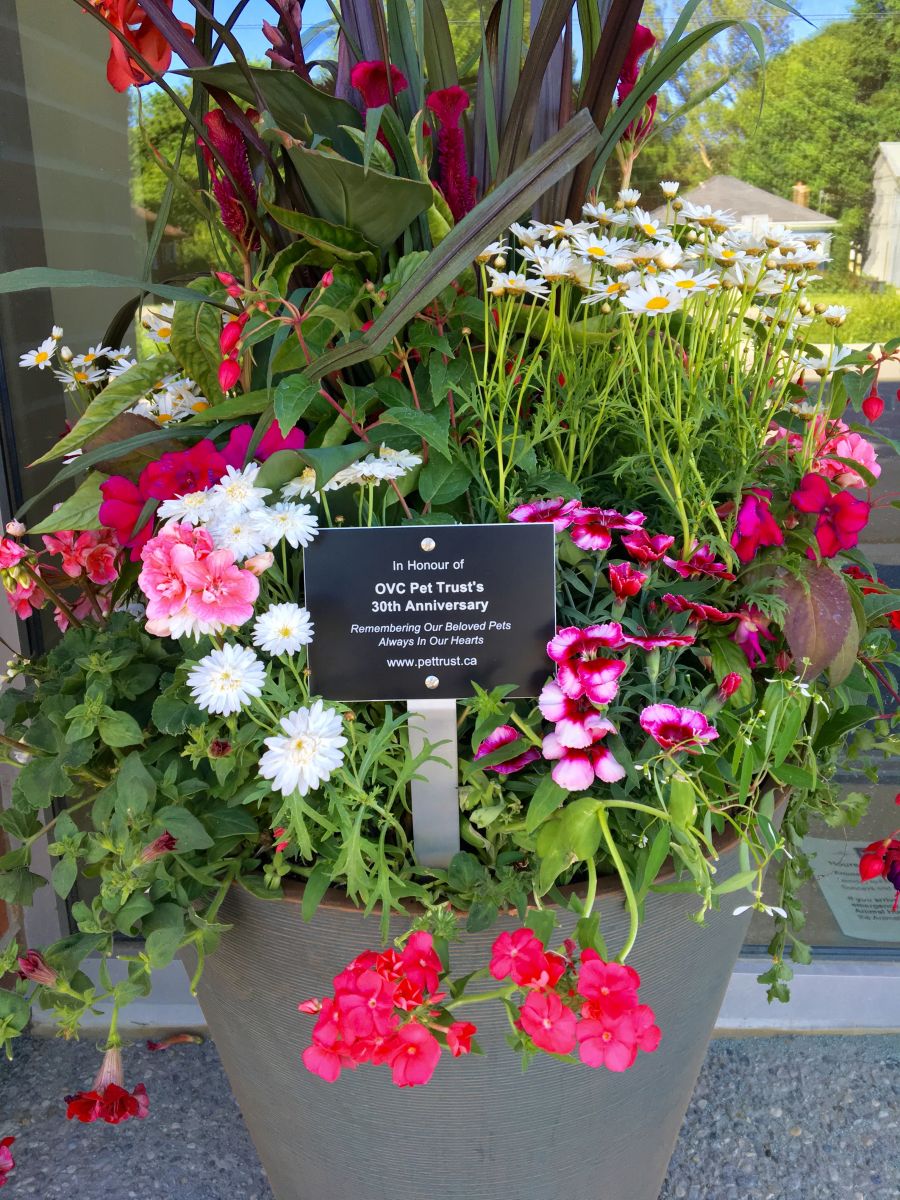Sunday, June 12, 2016 is World Pet Memorial Day
“What we have once enjoyed we can never lose. All that we love deeply becomes a part of us.” – Helen Keller
We sat down with Bojena Kelmendi, a Registered Social Worker and Clinical Counsellor at the Ontario Veterinary College, where she works with both pet owners and veterinary staff. Kelmendi supports clients at the OVC Health Sciences Centre experiencing concerns over their pet’s health status and managing grief over the loss of a pet. She also works with veterinary professionals challenged with their own grief and compassion fatigue.
“Grief is a very individual journey,” Kelmendi says. “The relationship between a person and their pet is a very special and unique bond. The loss of that relationship may result in a variety of emotions: denial, anger, shock, disbelief, pain, and other feelings too.”
She says that while one of the greatest healers is time, time only heals if you allow yourself to grieve. While sharing some of her general tips for ‘healing your own way’, she reinforces the importance of seeking support through the process: a skilled clinical counsellor, a pet loss support group, or family and friends are a few good examples of people who may be able to help.
Kelmendi’s Tips for Healing Your Own Way:
- Be kind to yourself. Grieving is an intensely personal process and you should take it at your own pace.
- Allow yourself to feel the pain of loss in a safe environment. Give yourself permission to cry and do not try to suppress those feelings so you can heal and start to move forward.
- Talk about your loss to those you trust will understand. Talking about your loss will help process your feelings and help you once again look at the unique and special relationship you had with your pet. It may guide you to move from a place of shock, denial and guilt to a place where you can start to process your grief.
- Try to minimize contact with those who you know will not understand your loss and may minimize you grieving: “Get over it. Get another dog”. Some people may have never experienced that very special relationship with an animal companion.
- You may try to make a scrapbook, collage, video or a special memorial place for your pet.
- Take good care of yourself. Start your day with breakfast, and eat small meals 4-5 times a day. Incorporate some physical activities into your daily schedule to support your sleep and overall well-being.
- Walks are one of the best forms of exercising. Initially, take your daily walks at a different time and in a different area than you would walk with your pet. Later on, when you feel better you can go back to your previous routine: maybe to meet with other pet owners with whom you used to chat.
- Meet with other pet owners and talk about what you are going through.
- Attend pet bereavement support group sessions. They are a wonderful sharing and healing experience.
- If you are a writer, try writing a journal or letters to your pet.
OVC Pet Trust is honouring World Pet Memorial Day this year by remembering our companion animals who are no longer with us. Connect with us on Facebook and Twitter and share your memories.

Flowers placed outside the OVC Companion Animal Hospital and the
Mona Campbell Centre for Animal Cancer by OVC Pet Trust in memory
of our pets who are no longer with us for World Pet Memorial Day 2016.
For more suggestions to help the grieving process, visit the OVC Health Sciences Centre website.
A list of resources and more information about the OVC Pet Loss Support Group is available here.
Kelmendi’s role is supported by OVC Pet Trust.

